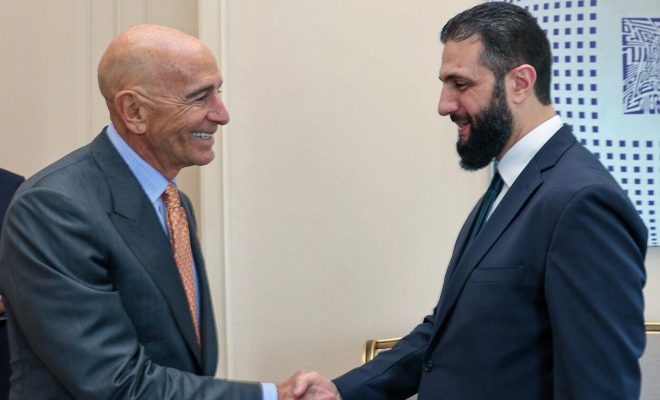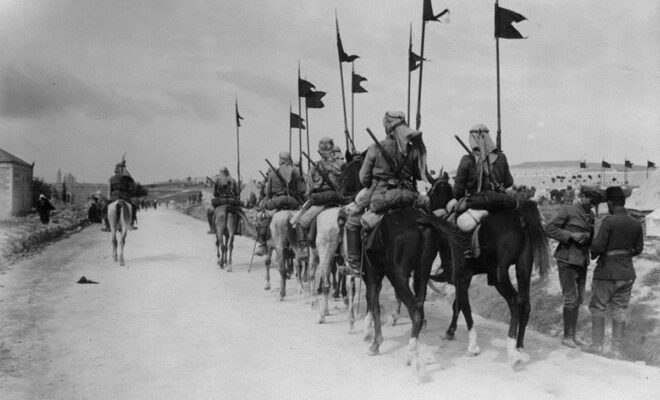The Graveyard of Empires: A Fertile Soil for the Deen

On July the 5th, after 20 years of occupation, the US forces unceremoniously left the Bagram Air Base in the middle of the night. Bagram, which was the symbol of US presence in the area, had its power shut off by the Americans as they slipped away.
This sudden departure did not sit well with the local collaborators of the US occupation, the Afghan National Army. General Mir Asadullah Kohistani, who is now effectively in charge of the base, said they had heard rumors of the Americans leaving, but had to verify it.
Before the Afghan national Army was able to take over, some looters went to salvage what they could. Soldiers within the Afghan army reported a deep sense of betrayal due to this decision.
A senior Afghan official, when speaking of the base that was once crawling with as many as 100,000 US troops, said, “They (Americans) are completely out now and everything is under our control, including watchtowers, air traffic, and the hospital.”
The departure is in keeping with US President Joe Biden’s announcement of a complete withdrawal from Afghanistan by the end of August this year. The diminishing ground presence of the Americans has resulted in a rapid expansion of the Taliban’s areas of control, as scores of villages have been acquired by the group.
What can we deduce from the sudden collapse of the occupying forces, the humiliation of the Afghan National Army, and the resurgence of the Taliban? The Ummah has seen this episode of US aggression playout for the past twenty years, what comes next?
Frustrating the occupiers
At the outset, it must be acknowledged that the resistance of the Afghan people has led to another empire’s humiliation on their soil. The Muslims of Afghanistan repeatedly defied the imperialist design of the British, ideologically and militarily defeated the Soviets, and have now forced the American Raj to pack its bags.
This is the same American Raj that had refused to negotiate with the Taliban twenty years ago and proceeded to pump billions in funds and tens of thousands in soldiers in its so-called “War on Terror”. The Bagram Air Base was America’s largest base in Central Asia and was their beachhead for control not just of Afghanistan, but the entire region.
Twenty years later, the “war on terror” has exposed the terror tactics of the American Empire, its vicious bloodlust, and networks of torture have made the war unpopular at home and have made the loss of blood and treasure entirely fruitless for the Americans.
This has forced the Americans to start talking about a “political solution” to their Afghan problem and to rely on negotiations under the Doha agreement.
This is not victory
Saluting the courage and resistance of the Afghan people should not blind us to the hard realities of our situation as an Ummah. The withdrawal of the occupiers’ ground presence does not make us immune to their systems of dominance, or safe from their endless aggression.
Even as they depart, the Americans will fight tooth and nail to maintain their influence in the region. They will do their best to play up the different factions of Afghan society against each other, as they did at the end of the Soviet occupation in the 80’s.
They have every interest in proving to the world that the chaos in Afghanistan was not provoked by the occupation but was the result of the lack of organization and savagery of the Afghans themselves. And they will never tolerate an Afghanistan that unites the Muslims under a system that meets their needs and protects their values.
The withdrawal has to be seen in the context of the US trying to protect its global prestige, not its actual commitment to stop interfering with the region. It is principally not meant to end the war and sustain peace, but to open another chapter of disaster and massive bloodshed, after which the US can propose its military and intelligence agenda by presenting the Afghan people as the source of the problems in the region.
The US has already made apparent its desire for continued presence in the region by talking about establishing a military base in northern Pakistan. Imran Khan is publicly against this idea, but he has recommitted his government’s role as an ally in the war on terror.
Since 2001, Pakistan has provided military bases, encouraged the US to use Pakistani soil to launch drone attacks against Afghans, handed over valuable intelligence, pried open Pakistan to America’s domestic intelligence agencies, and surrendered Pakistani citizens like Aafia Siddiqui to US operatives.
Still worse, the Pakistani leadership has conducted numerous military operations against its own citizens in return for a bloody wage disguised as the Coalition Support Funds. Such operations have killed thousands of innocent Pakistanis and propelled Pakistan to hold the world record for internally displaced refugees. Throughout this period the Pakistani economy by conservative estimates suffered losses over $100 billion.
Even after all this, CIA director William J Burns has been holding talks with the Pakistani military and ISI about achieving a peace deal in Afghanistan that enables the US to continue waging its war on terror. It should be clear that Pakistan’s involvement in the peace talks is to allow the United States to maintain control over the future of Afghanistan.
And the US is not the only destabilizing factor for Afghanistan. The collaborationist Afghan regime have even opened their doors to the Chinese.
Hanif Atmar, the Afghan Minister of Foreign Affairs, has discussed with his Chinese counterpart China providing counterterrorism support to Afghan security forces; the same China that is subjugating, imprisoning, and “re-educating” Islam out of its own Uyghur population under the guise of counterterrorism.
The reality is that as long as the Western-Capitalist ideology, its culture, values, economic dominance, intelligence influence remain an overpowering factor in Afghanistan, no amount of reshuffling the troops or bases will emerge in a victory for the Muslims.
What lies ahead
We have been here before. At the end of the Soviet occupation, there was a power vacuum in Afghanistan. Yet the militias did not unite under the higher purpose of re-establishing Islam and lighting a flame that would ignite the Muslim world in its struggle to free our lands from the chains of the rule of men.
Rather, while they all proclaimed an attachment to the symbols and rules of the deen, they engaged in a brutal civil war that left the country ravaged. We are at the brink of this again, Allah (swt) forbids. Already we have seen, as a response to the territorial gains of the Taliban, the Afghan government has turned to militarization under the name of “Public Defense”, choosing to arm local militias against the Taliban.
This militarization of local communities will lead to an uncontrollable spiral of violence, involving assassinations of political and religious leaders and resulting in a civil war. Already in this past year, Afghanistan has witnessed waves of targeted assassinations and fatal explosions inside Masjids among worshipers, killing hundreds of Muslim scholars (Ulama), imams of Masjids (preachers), and lecturers of Islamic studies.
Unifying under Islam is the only path forward for the Muslims of Afghanistan. This does not mean applying some rules of Islam over a certain tribe or linking Islamic concepts to some national or ethnic identity. Rather, it means radically shifting our self-identity to that of one Ummah and engaging in a project of unification that extends beyond ethnic or sectarian lines.
As our beloved Prophet (saw) tells us:
“He is not one of us who calls to tribalism. He is not one of us who fights for the sake of tribalism. He is not one of us who dies following the way of tribalism.” [Abu Dawud]
Unifying the Ummah
This project of unification extends beyond the borders of Afghanistan. In truth, there is no natural separation between the people of Afghanistan and Pakistan. It is only the treacherous regimes in both countries that have, though their own servitude to the world powers, divided and damaged
their relationship.
The Durand line (named of after Mortimer Durand, the secretary of the British Raj) is not beneficial to the Afghan or Pakistani people. Rather, it is in keeping with the design of the colonialists, who benefit from provoking nationalist fervor in the Ummah, resulting in the maintenance of small, ineffectual, and unstable states that are perpetually at war with each other and with their own people.
If we are committed to the revival of Islam, we cannot fall for this colonial trap. Piecing back together our lands, unifying our resources, forces and leadership, this is the only path to a true and lasting victory for the Muslim, may Allah (swt) hasten it! Ameen.
It is imperative for Afghanistan and the Muslims of Pakistan to unite under the banner of Islam. Together, Pakistan and Afghanistan could be, by permission of Allah (swt), the starting point of a state whose ideology and system emanate from a belief and reliance on the Most Just and Merciful Creator: the Khilafah. Embarking on this project is the only way to rid ourselves of the wretched colonial legacy of divisive borders, cruel systems of exploitation, ethnic tensions, and treacherous leadership on both sides of the Durand line.
Rather than depleting our intellectual and political capital on vicious infighting or bolstering one regional faction over another, the Muslims of Afghanistan and Pakistan should collectively be focusing their energies into implementing the systems of Islam comprehensively and immediately.
This will require collapsing our sense of national identity and recognizing that there is no bond that is worth preserving over the bond of our shared love and commitment to Allah (swt) and His Messenger (saw).
Let us not betray the blood and memory of all those we have lost in the last 2 decades in this bloody war against Islam by entertaining the fiction that we can move forward by trying the same partial solutions and the half measures that got us here in the first place. Unity, unconditional obedience to the command of Allah (swt), and absolute commitment to the betterment of the ummah as a whole is the only path forward.
We have tried everything else, and we cannot afford to do it again, we have lost too much.
The return of the Khilafah on the method of prophethood is a promise from Allah (swt) and His Messenger (saw). May we be of those are part of the effort to revive it, and may we live to see it, so we can witness a society that unites the hearts, protects the dignity, and justly manages the affairs of the believing men and women.
“And hold firmly to the rope of Allah all together and do not become divided. And remember the favor of Allah upon you – when you were enemies and He brought your hearts together and you became, by His favor, brothers. And you were on the edge of a pit of the Fire, and He saved you from it. Thus does Allah make clear to you His verses that you may be guided”. [TMQ 3:103]









